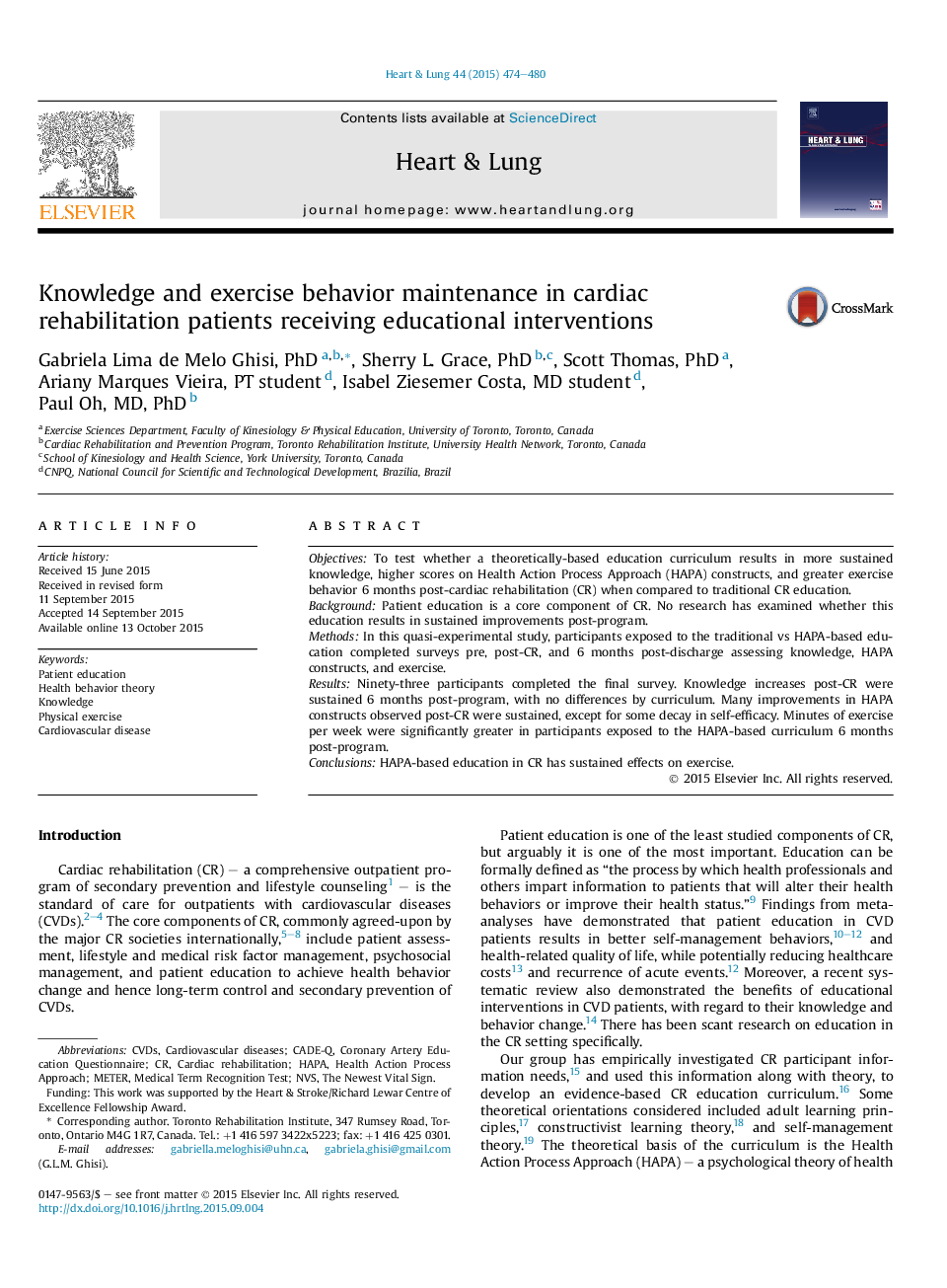| Article ID | Journal | Published Year | Pages | File Type |
|---|---|---|---|---|
| 5869152 | Heart & Lung: The Journal of Acute and Critical Care | 2015 | 7 Pages |
ObjectivesTo test whether a theoretically-based education curriculum results in more sustained knowledge, higher scores on Health Action Process Approach (HAPA) constructs, and greater exercise behavior 6 months post-cardiac rehabilitation (CR) when compared to traditional CR education.BackgroundPatient education is a core component of CR. No research has examined whether this education results in sustained improvements post-program.MethodsIn this quasi-experimental study, participants exposed to the traditional vs HAPA-based education completed surveys pre, post-CR, and 6 months post-discharge assessing knowledge, HAPA constructs, and exercise.ResultsNinety-three participants completed the final survey. Knowledge increases post-CR were sustained 6 months post-program, with no differences by curriculum. Many improvements in HAPA constructs observed post-CR were sustained, except for some decay in self-efficacy. Minutes of exercise per week were significantly greater in participants exposed to the HAPA-based curriculum 6 months post-program.ConclusionsHAPA-based education in CR has sustained effects on exercise.
